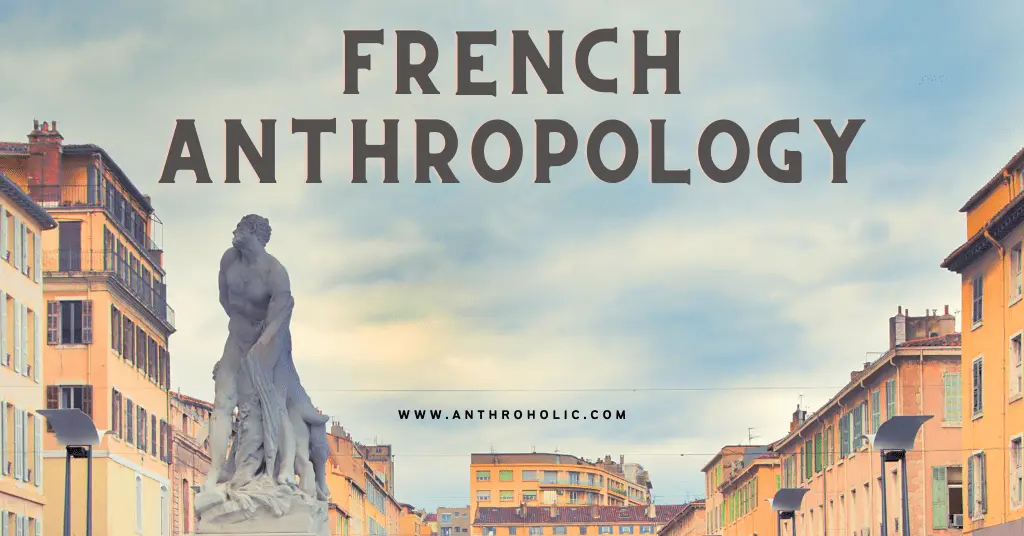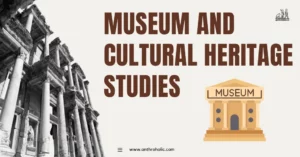AI Answer Evaluation Platform Live Now. Try Free Answer Evaluation Now
French Anthropology
French anthropology, in particular, has a rich history and has produced numerous influential scholars and groundbreaking theories.

History of French Anthropology
French anthropology traces its origins to the early 19th century, when scholars began to examine the cultural and biological differences among human populations. Early French anthropologists were influenced by the works of naturalists like Jean-Baptiste Lamarck and Georges Cuvier, as well as the ideas of the Enlightenment period (Barnard, 2000).
| Name | Contribution |
|---|---|
| Paul Broca | Pioneer of physical anthropology; studied brain anatomy |
| Armand de Quatrefages | Investigated human variation and racial classification |
The Durkheimian School
At the turn of the 20th century, Emile Durkheim emerged as a key figure in French anthropology. Durkheim founded the French school of sociology, which focused on studying the social structures and institutions that shape human behavior (Lukes, 1973). Durkheim’s ideas had a profound impact on the development of anthropology in France, laying the groundwork for the structuralist and functionalist approaches that would dominate the field in the 20th century.
Structuralism and Functionalism
In the mid-20th century, French anthropology became synonymous with structuralism, a theoretical perspective that analyzes cultural phenomena in terms of underlying structures. Claude Lévi-Strauss, a leading figure in structural anthropology, developed this approach through his studies of kinship systems, myths, and symbolic systems in various societies (Leach, 1970).
| Name | Contribution |
|---|---|
| Emile Durkheim | Founder of the French school of sociology |
| Marcel Mauss | Developed theories of exchange and gift-giving |
| Claude Lévi-Strauss | Pioneer of structural anthropology |
| Maurice Godelier | Explored the economic and political dimensions of culture |
Key Contributions of French Anthropology
- Theories of Social Solidarity: Emile Durkheim’s theories of social solidarity and the division of labor have had a lasting impact on anthropology. He argued that societies could be classified based on the type of solidarity that holds them together, either mechanical (based on shared values) or organic (based on interdependence) (Durkheim, 1893/1984).
- Structural Anthropology: Claude Lévi-Strauss’s structural anthropology has been highly influential in the study of culture and society. He argued that culture could be understood as a system of signs, and that the relationships between these signs reveal deep-seated structures that govern human thought and behavior (Lévi-Strauss, 1958).
- The Gift: Marcel Mauss’s essay “The Gift” (1925) has had a profound impact on anthropological theories of exchange, reciprocity, and social relationships. Mauss argued that gifts are not simply economic transactions, but serve as crucial elements in the formation and maintenance of social bonds (Mauss, 1925/1990). His work has inspired generations of anthropologists to explore the role of exchange and gift-giving in various cultural contexts.
- The Anthropology of Kinship: The study of kinship has been a central concern in French anthropology, with scholars like Claude Lévi-Strauss and Françoise Héritier making significant contributions to the field. Lévi-Strauss’s analysis of kinship systems as structures of relationships that follow universal patterns has had a lasting impact on the study of human social organization (Lévi-Strauss, 1949).
Comparison with Other Anthropological Traditions
British Social Anthropology
French anthropology has often been contrasted with the British social anthropology tradition, which also emerged in the early 20th century. While both traditions share an emphasis on the study of social structures and institutions, British anthropologists like Bronisław Malinowski and A.R. Radcliffe-Brown tended to adopt a more functionalist approach, focusing on how these structures contribute to the maintenance of social order (Kuper, 1983).
| Aspect | French Anthropology | British Social Anthropology |
|---|---|---|
| Key Figures | Emile Durkheim, Claude Lévi-Strauss | Bronisław Malinowski, A.R. Radcliffe-Brown |
| Theoretical Approach | Structuralism | Functionalism |
| Focus | Underlying structures of culture | Social institutions and order |
American Cultural Anthropology
French anthropology also differs from the American cultural anthropology tradition, which tends to prioritize the study of cultural symbols, meanings, and practices. While both traditions share an interest in the analysis of culture, French anthropology’s structuralist approach often contrasts with the more interpretive and phenomenological methods employed by American anthropologists like Clifford Geertz and Victor Turner (Ortner, 1984).
Conclusion
French anthropology has made significant contributions to the field of anthropology, introducing groundbreaking theories and shaping our understanding of human societies and cultures. From the early days of physical anthropology to the development of structuralism and the study of social solidarity, French anthropologists have consistently pushed the boundaries of the discipline. As we continue to explore the complexities of human societies, the insights and methodologies of French anthropology will undoubtedly remain an important and influential part of the anthropological tradition.
See Also
References
- Barnard, A. (2000). History and Theory in Anthropology. Cambridge University Press.
- Durkheim, E. (1984). The Division of Labor in Society (W. D. Halls, Trans.). The Free Press. (Original work published 1893)
- Kuper, A. (1983). Anthropology and Anthropologists: The Modern British School. Routledge.
- Leach, E. (1970). Lévi-Strauss. Fontana.
- Lévi-Strauss, C. (1949). Les Structures élémentaires de la parenté. Presses Universitaires de France.
- Lévi-Strauss, C. (1958). Anthropologie structurale. Plon.
- Lukes, S. (1973). Émile Durkheim: His Life and Work. Penguin Books.
- Mauss, M. (1990). The Gift: The Form and Reason for Exchange in Archaic Societies (W. D. Halls, Trans.). W.W. Norton & Company. (Original work published 1925)
- Ortner, S. B. (1984). Theory in Anthropology since the Sixties. Comparative Studies



